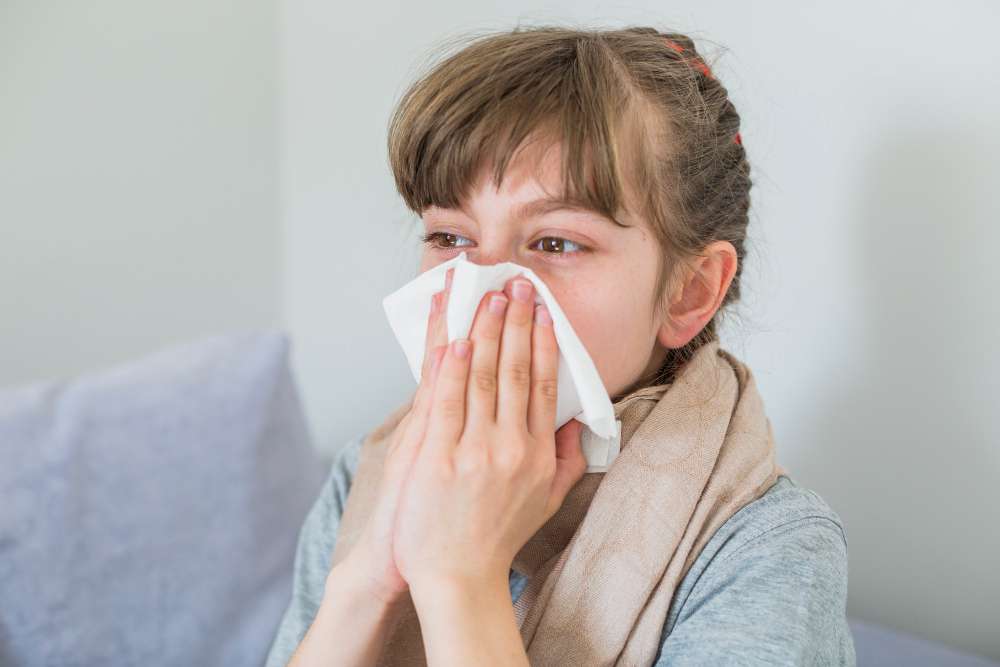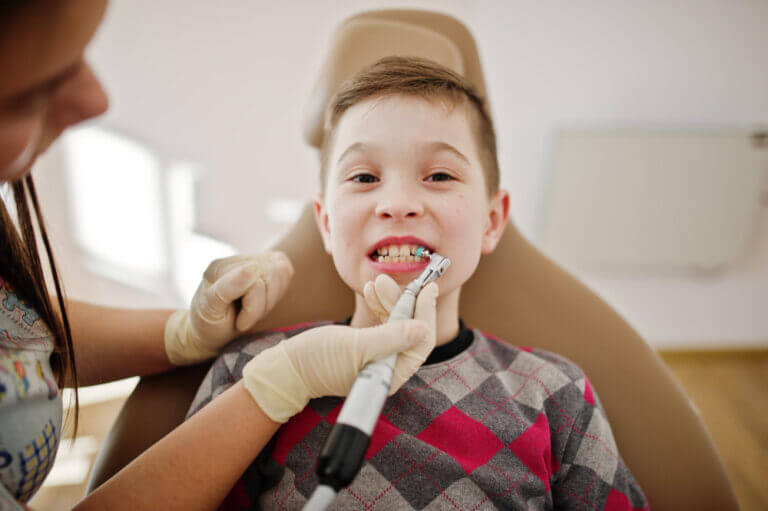Signs of Pediatric allergies
Pediatric allergies, also known as childhood allergies, refer to allergic reactions that occur in children. Allergies develop when a child’s immune system reacts to substances in the environment that are typically harmless, known as allergens. Common allergens include pollen, dust mites, pet dander, certain foods, insect bites/stings, and mold spores.
When a child with allergies is exposed to an allergen, their immune system produces antibodies called immunoglobulin E (IgE). These antibodies trigger the release of chemicals, such as histamine, which cause the characteristic symptoms of allergies.
The top 10 common signs of an allergic reaction are listed below:
- Persistent sneezing: If your child frequently sneezes, especially in response to certain triggers like pollen, dust, or pet dander, it could be a sign of allergies.
- Runny or stuffy nose: Allergies can cause a persistent, watery nasal discharge or congestion, making it difficult for your child to breathe through their nose.
- Itchy or watery eyes: Allergic conjunctivitis can cause itching, redness, and excessive tearing of the eyes. Rubbing the eyes may worsen the symptoms.
- Skin rashes or hives: Allergies can lead to skin reactions such as itchy rashes, eczema flare-ups, or hives (raised, red, and itchy bumps on the skin).
- Coughing or wheezing: Allergies can irritate the respiratory system, leading to a chronic cough or wheezing, similar to asthma symptoms.
- Recurring ear or sinus infections: Allergies can contribute to chronic inflammation in the nasal passages, leading to increased susceptibility to ear or sinus infections.
- Abdominal discomfort: Some children with allergies may experience gastrointestinal symptoms like stomachaches, cramps, nausea, or diarrhea.
- Fatigue and irritability: Allergies can cause sleep disturbances due to nasal congestion or itchiness, leading to fatigue during the day. Irritability can also result from constant discomfort.
- Behavioral changes: Young children may exhibit behavioral changes when dealing with allergies, such as increased fussiness, decreased appetite, or difficulty concentrating.
- Family history: If there is a family history of allergies, asthma, eczema, or hay fever, the risk of your child developing allergies is higher.
Remember, these signs can vary depending on the specific allergen and individual reactions. It’s important to consult a healthcare professional for an accurate diagnosis and appropriate treatment.

------------From our Sponsors------------









